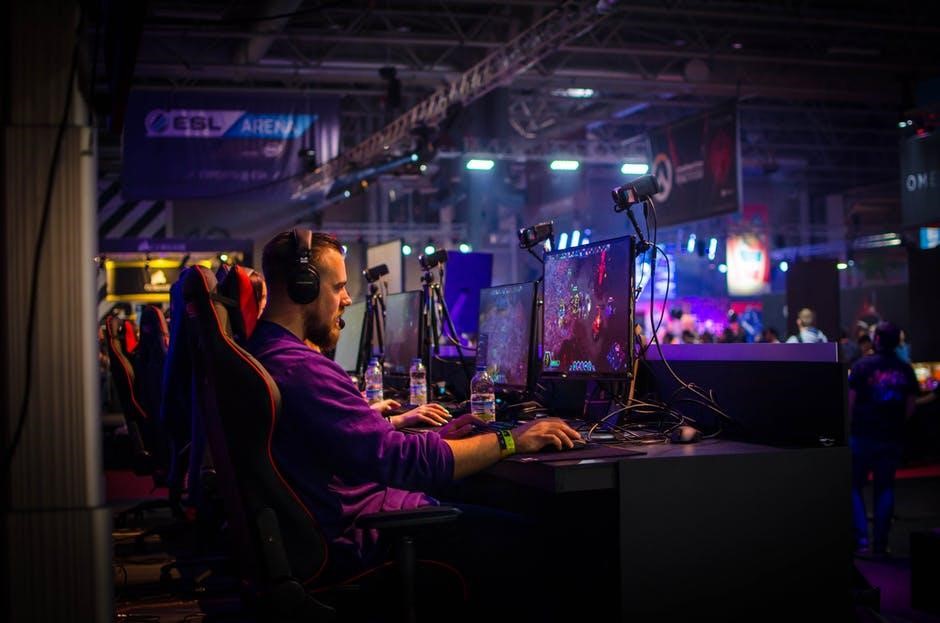The Battle of Devs & How They Influence Gaming
The Battle of Devs & How They Influence Gaming?
Over the past 10 years, we’ve seen huge shifts in the world of gaming. From mid-cycle upgrades to internet gaming, a decade has made a lifetime of a difference. Who’s behind these changes? Namely, developers. Game developers and designers are changing the way gamers approach the industry, and they’re redesigning it from the inside out.
Just recently, “battle royale” style games have spurred a new disruption. Will these takedown industry giants like Electronic Arts and Activision Blizzard which don’t have any modes like this in their own games? The success of Fortnightand recent Apex Legends shows how big this market is becoming. How will this battle play out, and what will the influence be on gaming as a community? Let’s take a closer look.

A Brief History of Gaming
To understand how we’ve reached this pinnacle of change, we have to take a few steps back. In the 80s and 90s, games were built in big studios. Developers worked in-house, and only indie developers trying to develop projects on their own. Businesses worked in cycles that were dictated by major consoles. When major consoles came and went, the developers moved on to new games.
The introduction of internet gaming changed all of this. Now, it became possible for developers to distribute games over the internet rather than through physical copies. Because there was no longer any need for manufacturing and distribution in their budgets, a new marketplace appeared.
Add to this the rise of iPhone and Android, and you’ve got yourself a brave new world of gaming. Mobile gaming, internet gaming, and no-code applications like GmeMaker and Twine shook the industry to its core. Big-name companies started to notice these indie developers on a wider scale.
Today, things are much different than they were a decade ago. The lifecycle is shorter than ever. Video gamers are always jumping to the next best thing, and console lifecycles matter significantly less. Mobile and internet gaming is the new normal. Developers are at the front end of this movement, influencing the entire industry from the ground up.

The New Developers
Developers of today work differently. They’re more likely to work from home in small teams. They’ve strayed from those big-name producers, and indie gaming is rapidly expanding. Costs are kept lower, communication is done virtually, and cloud services are the new way to get more done virtually. Performance management for applications is handled virtually.
Along with these changes comes a push for more diversity. While the in-house studios of the past were filled with young (mostly male) developers, we’re welcoming more people from all backgrounds into the industry. With smaller, regional teams, it’s now possible to reach more diverse parts of the country and world.
Developers are also finding new ways to make money beyond simply producing games. For instance, according to a study from Developer Economics, advertisers are paying less than they ever have before. This means game developers need new sources of income. Many are opting for subscription models, branded merchandise, and even making money from other developers. By selling services like assets and plugins to other game developers, it’s easier to make a steady income without relying on advertisers.

The Future of Game Developers
This battle between technology, developers, and trends is far from over. With the industry only growing with the rise of new battle royale games, there are more challenges on the horizon. What we do know is the past is not coming back. The days of powerful, in-house giants are slowly coming to an end.
Developers of today are closer to gamers than they’ve ever been in the past. There’s now an open dialogue between creators and consumers. Thanks to video game streaming, new influencers are emerging who push the industry even further.
It’s possible for consumers to see games in action before they make a purchase, and more free games are on the market than ever before. That means competition between developers is fierce. Most want to go where the money is, like those who are following the success of Fortnight, but the money doesn’t always follow clear patterns. While multiplayer, battle royal games might be the next big thing, there’s no guarantee they’ll stick around long-term. As mentioned before, the lifecycle for games nowadays is ridiculously short.
Fast gaming means the world needs more fast developers. Agility is a term thrown around in every industry, but it’s especially relevant to gaming. These developers are in a battle not only against themselves, but also against the clock, larger companies, and the gamers themselves. We’ve all come a long way in the past decade, but we still have a ways to go. It’s unlikely the video game industry will ever level out to predictable levels.
What changes have you noticed in the past few years? Where do you think developers will take gaming next? Most importantly, what side are you on in this battle royal of gaming?
Author: Ashley Lipman

Content marketing specialist
Ashley is an award-winning writer who discovered her passion in providing creative solutions for building brands online. Since her first high school award in Creative Writing, she continues to deliver awesome content through various niches.
(59)


